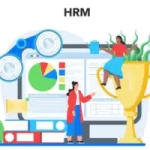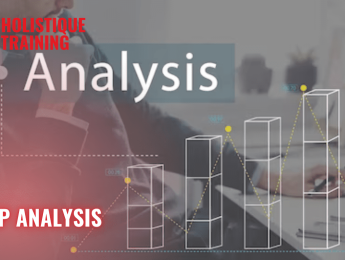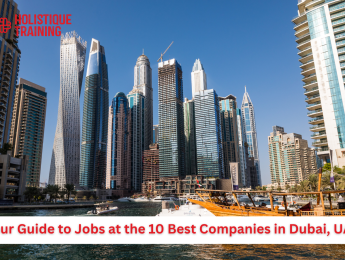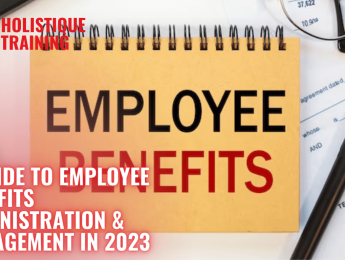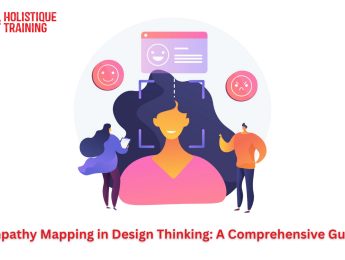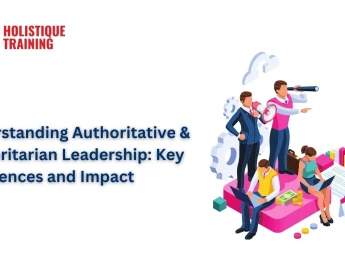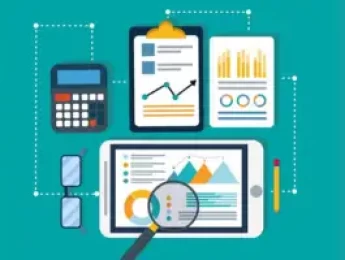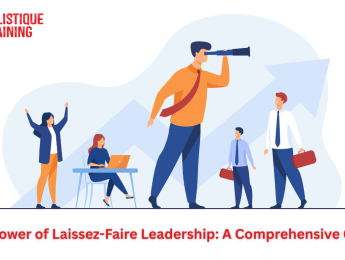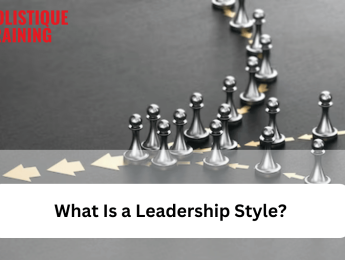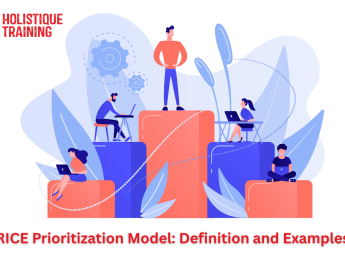- Table of Contents
- Introduction
- What Are HR Goals?
- Why Is Setting HR Goals Important?
- Clarity and Direction
- Measuring Progress
- Data-Driven Decision Making
- Performance Evaluation
- Accountability and Recognition
- Alignment with Organisational Success
- Adaptability and Agility
- Stakeholder Confidence
- Strategic Resource Allocation
- Short-Term HR Goals
- Long-Term HR Goals
- Maximising the Benefits of Long-Term Goal Planning
- 1. Comprehensive Internal and External Analysis
- 2. Strategic Talent Forecasting
- 3. Succession Planning and Leadership Development
- 4. Enhanced Employee Development Strategies
- 5. Building Collaborative Networks
- 6. Proactive Diversity and Inclusion Initiatives
- 7. Adopting Advanced HR Technologies
- 8. Continuous Monitoring and Adaptation
- 9. Stakeholder Collaboration
- Setting Goals as an HR Practitioner
- 1. Professional Development and Skill Enhancement
- 2. Leadership Skills and Mentorship
- 3. Driving HR Initiatives
- 4. Innovative HR Process Improvement
- 5. Data-Driven Decision-Making
- 6. Change Management and Adaptability
- 7. Employee Well-being and Work-Life Balance
- 8. Community Engagement and Corporate Social Responsibility
- 9. Workforce Diversity and Inclusion
- Tracking HR Goals for Your Team
- 1. Establishing Key Performance Indicators (KPIs)
- 2. Regular Measurement and Assessment
- 3. Utilising HR Analytics and Reporting Tools
- 4. Conducting Check-ins with Team Members
- 5. Celebrating Milestones and Achievements
- 6. Continuous Reassessment and Adaptation
- 7. Feedback Loops and Employee Involvement
- 8. Documentation and Lessons Learned
- 9. Continuous Skills Development
- The Future of HR
- Artificial Intelligence (AI) and Machine Learning
- Data Analytics for Informed Decision-Making
- Enhanced Recruitment Tools
- Employee Self-Service Portals
- Virtual Reality (VR) for Training and Development
- Blockchain for Enhanced Security
- Enhanced Employee Experience through Chatbots
- Remote Work Technologies
- Conclusion
Introduction
The dynamic nature of the modern business landscape demands that human resources (HR) play a pivotal role in shaping and sustaining organisational success. HR professionals are strategic partners, working tirelessly to align the workforce with the company's objectives. To achieve this, establishing clear and measurable HR goals becomes paramount. In this comprehensive blog post, we will delve into the significance of HR goals, both in the short-term and long-term, and provide valuable insights on how HR practitioners can leverage goal-setting to propel organisational growth and maximise their impact.
What Are HR Goals?
At the heart of HR's strategic initiatives are well-defined goals that enhance various facets of the workforce, talent management, employee engagement, and overall organisational effectiveness. These goals serve as a roadmap, guiding HR practitioners to align their efforts with the company's mission, vision, and core values. HR goals include recruitment and selection, employee development, performance management, diversity and inclusion initiatives, and employee well-being programmes.
HR Goal Area | Objectives |
Recruitment and Selection | Attract, hire, and retain top talent |
Employee Development | Foster continuous learning and skill development |
Performance Management | Evaluate and enhance employee performance |
Diversity and Inclusion | Create an inclusive and diverse workplace culture |
Employee Well-being | Promote employee wellness and work-life balance |
Table 1: Objectives of different HR goal areas
Why Is Setting HR Goals Important?
Setting HR goals is a routine task and a strategic imperative that profoundly impacts an organisation's success. Let's break down the reasons why establishing clear and measurable HR goals is crucial:
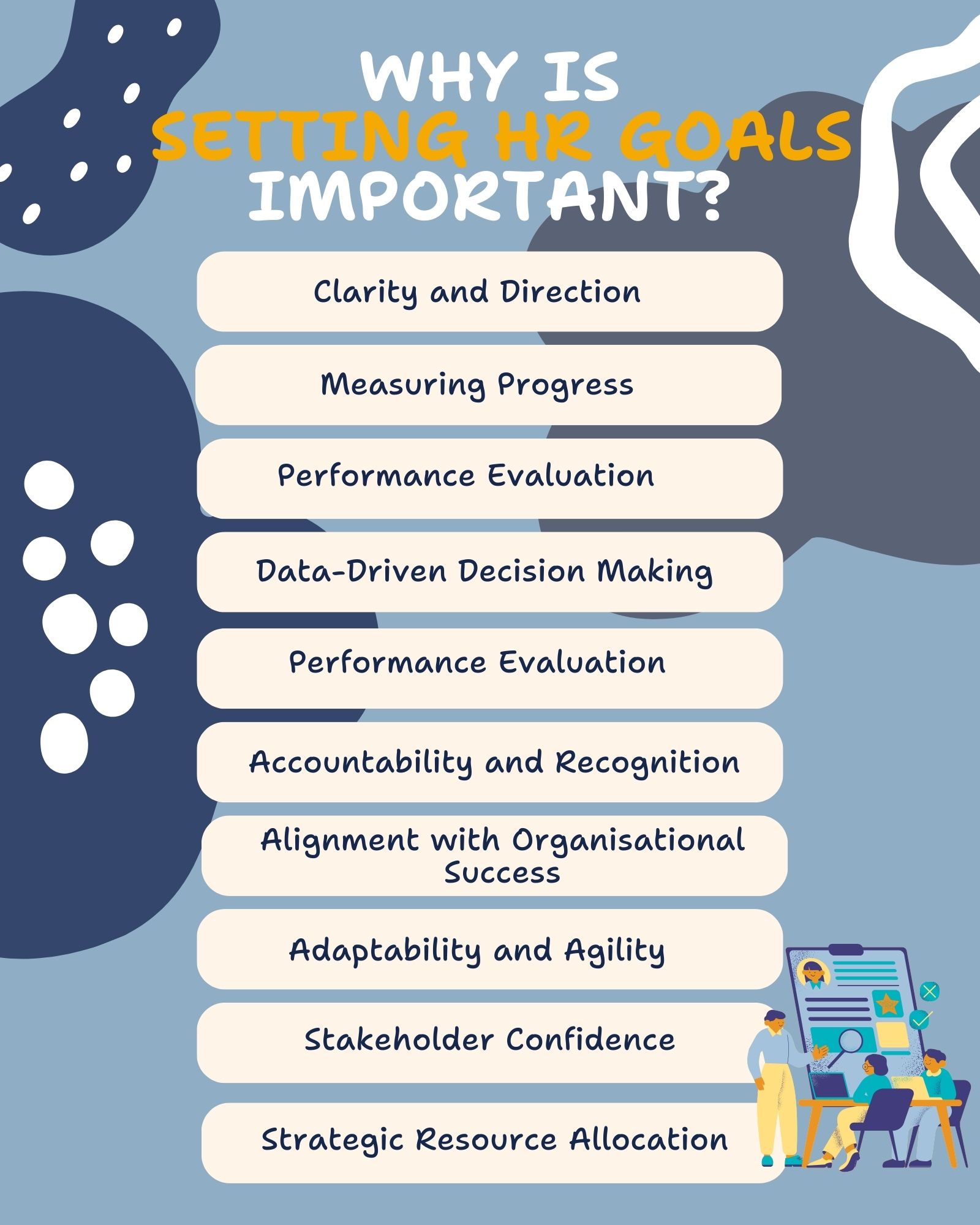
Clarity and Direction
Without well-defined goals, HR initiatives might lack a clear purpose. By establishing specific objectives, HR professionals gain a definitive roadmap. This clarity ensures that every action taken aligns with the broader organisational strategy, leading to a focused and purposeful HR function.
Measuring Progress
Goals provide a benchmark for progress measurement. HR professionals can quantify achievements against these goals, enabling them to track their efforts. Regular assessments allow for a quick understanding of what's working and what needs improvement, facilitating timely adjustments in HR strategies.
Data-Driven Decision Making
Setting HR goals necessitates collecting and analysing relevant data. This data-driven approach enables HR professionals to make informed decisions. By leveraging analytics, HR can identify patterns, trends, and areas for enhancement, ensuring that strategies are based on concrete evidence rather than intuition.
Performance Evaluation
HR goals serve as a basis for evaluating the performance of HR initiatives and individual employees. By comparing the outcomes against predetermined objectives, HR professionals can assess the effectiveness of their programmes. This evaluation provides valuable insights into the strengths and weaknesses of various HR processes, paving the way for continuous improvement.
Accountability and Recognition
Clear goals create a sense of accountability within the HR department. Team members are aware of their responsibilities and are accountable for achieving the set objectives. Additionally, when goals are met, HR professionals gain recognition for their contributions. Recognising and celebrating achievements not only boosts morale but also motivates employees to maintain their high standards of performance.
Alignment with Organisational Success
HR goals are not isolated; they are intricately woven into the fabric of the organisation's mission and vision. When HR goals are achieved, they contribute directly to the organisation's overall success. For instance, efficient talent acquisition strategies can result in a skilled workforce that is aligned with the company's goals, ensuring sustainable growth.
Adaptability and Agility
The business landscape is dynamic, and goals help HR remain adaptable. HR goals can be revised and realigned as market conditions change to meet new challenges. This flexibility ensures that the HR function can quickly respond to external factors, ensuring the organisation remains competitive and resilient.
Stakeholder Confidence
Well-defined HR goals instil confidence in stakeholders, including employees, investors, and partners. When stakeholders see a focused HR strategy with tangible goals, they are more likely to trust the organisation's leadership. This trust is vital for attracting top talent, retaining clients, and maintaining investor confidence.
Strategic Resource Allocation
HR goals help in prioritising resource allocation. HR professionals can allocate resources efficiently by identifying specific areas that need improvement or enhancement. Whether it's investing in employee training, upgrading HR technologies, or expanding diversity and inclusion programmes, resources are allocated judiciously, maximising their impact.
Setting HR goals is not just a procedural task; it is the cornerstone of strategic HR management. These goals provide direction, ensure accountability, foster adaptability, and contribute significantly to organisational success. By embracing the practice of goal-setting, HR professionals become architects of positive change, driving the organisation towards excellence in the ever-evolving business landscape.
Short-Term HR Goals
In the short-term, HR goals focus on immediate priorities that require prompt attention. These goals address critical areas such as employee onboarding, communication and collaboration, training programmes, and wellness initiatives. By setting specific, measurable, achievable, relevant, and time-bound (SMART) goals, HR professionals can effectively track progress and ensure successful execution. Short-term goals provide a foundation for enhancing HR practices and driving positive outcomes within a relatively shorter timeframe.
HR Goal | Description | Timeline |
Seamless Onboarding | Enhance the onboarding experience for new hires | 3 months |
Effective Communication | Improve internal communication processes | Ongoing |
Training Programme Quality | Enhance the quality and relevance of training | 6 months |
Employee Wellness | Implement wellness programmes for staff | 4 months |
Table 2: Examples of short-term HR goals
Long-Term HR Goals
While short-term goals focus on immediate needs, long-term HR goals encompass strategic objectives that align with the organisation's vision and long-range plans. These goals involve transforming the HR function and substantially contributing to long-term business success. Examples include building a strong employer brand, fostering a diverse and inclusive workplace culture, succession planning, implementing advanced HR technologies, and creating a learning organisation. Achieving long-term goals requires careful planning, stakeholder collaboration, and a deep understanding of future needs and challenges.
HR Goals | Short-Term Focus | Long-Term Focus |
Talent Acquisition | Rapid Hiring for Immediate Needs | Building a Sustainable Talent Pipeline |
Employee Engagement | Enhancing Workplace Morale and Collaboration | Cultivating a Positive Organisational Culture |
Training Program | Skill Enhancement and Onboarding | Continuous Learning and Skill Development |
Diversity & Inclusion | Immediate Inclusivety IInitiiatiives | Fostering Inclusive Culture for Long-Term Diversity |
Performance Management | Immediate Goad Attainment and Feedback | Establish long-term Tallent Developmental Plans |
Table 3: Comparison of short-term and long-term HR goals
Maximising the Benefits of Long-Term Goal Planning
Maximising the Benefits of Long-Term Goal Planning
Long-term goal planning in HR is a proactive approach that involves careful analysis, strategic thinking, and collaboration. Here's how HR professionals can maximise the benefits of long-term goal planning:
1. Comprehensive Internal and External Analysis
Long-term goal planning starts with an in-depth analysis of both internal and external factors. Internally, HR professionals assess the organisation's current workforce, identifying strengths, weaknesses, skill gaps, and areas for improvement. Externally, they analyse industry trends, technological advancements, demographic shifts, and talent market dynamics. This comprehensive analysis provides valuable insights, enabling HR to anticipate future challenges and opportunities.
2. Strategic Talent Forecasting
One key aspect of long-term goal planning is forecasting the organisation's talent needs. By analysing market trends and internal growth projections, HR can predict the skills and competencies that will be in demand. Strategic talent forecasting ensures that the organisation has the right talent in place to capitalise on emerging opportunities and overcome potential challenges.
3. Succession Planning and Leadership Development
Long-term goals often involve ensuring a seamless leadership transition and critical roles within the organisation. Succession planning identifies high-potential employees and prepares them for future leadership positions. HR professionals design development programmes and mentorship initiatives to groom these individuals, ensuring a steady pipeline of capable leaders. This proactive approach guarantees continuity in leadership, even during periods of organisational change.
4. Enhanced Employee Development Strategies
Long-term goal planning allows HR to invest in comprehensive employee development strategies. This can include personalised training programmes, continuous learning initiatives, and skill development workshops. Empowering employees with the skills needed for the future makes the organisation more agile and adaptable. Moreover, investing in employee development enhances employee engagement and retention, creating a positive workplace culture.
5. Building Collaborative Networks
Collaboration with external partners, educational institutions, and industry experts is crucial for long-term success. HR professionals can build collaborative networks to stay updated on industry best practices, emerging technologies, and innovative HR solutions. These partnerships provide access to valuable resources, enabling the organisation to implement cutting-edge HR practices and stay ahead of the competition.
6. Proactive Diversity and Inclusion Initiatives
Long-term goal planning allows HR to address diversity and inclusion (D&I) initiatives proactively. By fostering a diverse and inclusive workplace culture, organisations can tap into a wider talent pool and benefit from diverse perspectives. HR professionals design long-term strategies to promote D&I, ensuring that the workplace is inclusive, respectful, and supportive of all employees, regardless of their backgrounds.
7. Adopting Advanced HR Technologies
Long-term goals often involve the integration of advanced HR technologies. HR professionals can assess and implement innovative solutions such as AI-driven recruitment tools, predictive analytics for talent management, and advanced employee engagement platforms. By leveraging these technologies, HR processes become more efficient, allowing HR professionals to focus on strategic initiatives while routine tasks are automated.
8. Continuous Monitoring and Adaptation
Long-term goal planning is not a one-time activity but a continuous process. HR professionals establish key performance indicators (KPIs) to monitor the progress of long-term goals. Regular assessments allow HR to adapt strategies based on the changing business landscape. By staying agile and responsive, HR can ensure that long-term goals remain relevant and aligned with the organisation's evolving needs.
9. Stakeholder Collaboration
Long-term goal planning involves collaboration with various stakeholders, including employees, leaders, and external partners. HR professionals facilitate open communication channels, encouraging feedback and insights from stakeholders. By involving everyone in the planning process, HR gains a holistic perspective, ensuring that long-term goals are well-rounded and consider the organisation's diverse needs.
In summary, maximising the benefits of long-term goal planning in HR requires a proactive, data-driven, and collaborative approach. By conducting comprehensive analyses, nurturing talent, fostering inclusion, embracing technology, and maintaining adaptability, HR professionals pave the way for sustainable organisational success. Long-term goal planning empowers organisations to navigate challenges, capitalise on opportunities, and build a workforce that is prepared for the future and capable of shaping it.
Setting Goals as an HR Practitioner
As the architects of organisational success, HR practitioners play a pivotal role in shaping the workplace environment and driving positive change. Setting personal goals is not only a demonstration of commitment to individual growth but also a testament to their leadership within the HR department. Here's how HR professionals can set and leverage personal goals effectively:
1. Professional Development and Skill Enhancement
Continuous learning is key to staying relevant in the ever-evolving field of HR. HR professionals can set personal goals for acquiring new certifications, attending industry-specific workshops, or pursuing advanced degrees. By investing in their professional development, they enhance their expertise, enabling them to bring innovative solutions and best practices to the organisation.
2. Leadership Skills and Mentorship
Effective HR professionals are also strong leaders and mentors. Setting goals to enhance leadership skills, such as decision-making, conflict resolution, and team management, can significantly impact their ability to guide their teams. Additionally, HR practitioners can set goals to mentor junior staff, fostering a culture of knowledge-sharing and continuous growth within the department.
3. Driving HR Initiatives
HR professionals can set personal goals for driving specific HR initiatives within the organisation. For instance, they can aim to improve employee engagement scores, implement new diversity and inclusion programmes, or enhance the onboarding experience for new hires. These goals align their individual efforts with the broader HR objectives, showcasing their leadership in implementing impactful changes.
4. Innovative HR Process Improvement
Setting goals related to process improvement demonstrates initiative and creativity. HR practitioners can focus on optimising HR processes, automating repetitive tasks, or implementing innovative HR technologies. These goals enhance efficiency and free up time for HR professionals to concentrate on strategic initiatives that drive organisational growth.
5. Data-Driven Decision-Making
In the age of big data, HR professionals can set goals to enhance their proficiency in HR analytics. By setting objectives related to gathering, analysing, and interpreting HR data, they can make data-driven decisions. This skill empowers HR leaders to accurately identify trends, predict future workforce needs, and measure the impact of HR initiatives.
6. Change Management and Adaptability
Given the dynamic nature of businesses, HR professionals can set goals to enhance their change management skills. This involves learning how to effectively lead teams through organisational changes, mergers, or restructuring. By setting goals related to adaptability and change management, HR professionals demonstrate their ability to navigate uncertainty and guide their teams successfully.
7. Employee Well-being and Work-Life Balance
HR professionals can set personal goals related to promoting employee well-being and work-life balance within the organisation. Initiatives such as organising wellness workshops, implementing flexible work schedules, or enhancing mental health support programmes contribute to a healthier and more productive workforce. By championing these initiatives, HR practitioners create a positive work environment.
8. Community Engagement and Corporate Social Responsibility
HR leaders can set goals related to community engagement and corporate social responsibility (CSR). Initiatives such as volunteering programmes, environmental sustainability initiatives, or partnerships with local charities showcase the organisation's commitment to making a positive impact beyond its walls. HR professionals leading these efforts demonstrate their social leadership and commitment to the community.
9. Workforce Diversity and Inclusion
Setting goals related to promoting diversity and inclusion within the workplace is crucial for HR professionals. Goals can include increasing the representation of underrepresented groups, organising awareness campaigns, or implementing inclusive hiring practices. These goals align with broader organisational objectives and contribute to creating a diverse and inclusive workplace culture.
Setting and achieving personal goals not only enhance the skills and capabilities of HR professionals but also position them as effective leaders within the organisation. By proactively working towards these goals, HR practitioners lead by example, inspiring their teams and colleagues to strive for excellence. Their personal growth and leadership directly contribute to the overall success of the HR department and, consequently, the entire organisation. Through continuous self-improvement and leadership development, HR professionals become catalysts for positive change, fostering a workplace environment that thrives on innovation, collaboration, and continuous growth.
Tracking HR Goals for Your Team
Tracking HR goals is a critical aspect of goal-setting that goes beyond mere documentation. It involves a systematic approach to monitoring progress, ensuring accountability, and fostering adaptability within the HR department. Here's how HR professionals can effectively track their goals to drive organisational success:
1. Establishing Key Performance Indicators (KPIs)
Setting clear and measurable KPIs is the foundation of effective goal tracking. HR professionals need to define specific metrics that align with each goal. For instance, if the goal is to improve employee engagement, KPIs could include metrics like survey scores, feedback response rates, or retention rates. These KPIs serve as quantifiable benchmarks against which progress can be measured.
2. Regular Measurement and Assessment
Regular measurement and assessment of progress against established KPIs are crucial. HR professionals should implement a systematic schedule for evaluating the performance of ongoing initiatives. Whether it's a quarterly, bi-annual, or annual review, consistency in measurement ensures that the progress is monitored in a structured manner, allowing for timely interventions if goals are not being met.
3. Utilising HR Analytics and Reporting Tools
HR analytics and reporting tools are invaluable assets for tracking goals. These tools provide detailed insights into various HR metrics, allowing HR professionals to visualise trends, identify patterns, and accurately measure their initiatives' impact. By leveraging advanced technologies, HR can make data-driven decisions, ensuring that their strategies are grounded in empirical evidence.
4. Conducting Check-ins with Team Members
Regular check-ins with team members involved in implementing HR initiatives are essential. These meetings provide an opportunity to discuss progress, challenges faced, and potential solutions. Open communication channels foster a collaborative environment, enabling team members to share insights and collaborate on problem-solving, ensuring the goals stay on track.
5. Celebrating Milestones and Achievements
Celebrating milestones and achievements, no matter how small, is essential for boosting morale and motivation. Recognising the progress made towards HR goals acknowledges the team's efforts, reinforcing their dedication and commitment. Celebrations can be in the form of team acknowledgements, awards, or even simple appreciative gestures, creating a positive atmosphere that encourages continued efforts.
6. Continuous Reassessment and Adaptation
The business landscape is dynamic, and HR goals need to be adaptable to changing circumstances. HR professionals should continuously reassess their goals in light of evolving organisational needs and market trends. If certain goals no longer align with the company's strategic direction, they should be revised or replaced. Adaptability ensures that HR initiatives remain relevant and impactful.
7. Feedback Loops and Employee Involvement
Engaging employees in the goal-tracking process can provide valuable feedback. Anonymous surveys, suggestion boxes, or focus group discussions can yield insights into the effectiveness of HR initiatives from the employees' perspective. This feedback loop allows HR professionals to make adjustments, ensuring that the goals are not only met but also positively impact the employees' experiences.
8. Documentation and Lessons Learned
Documenting the progress, challenges faced, and lessons learned during the goal-tracking process is crucial. Detailed documentation serves as a reference for future initiatives and provides valuable insights into what worked well and what didn't. By analysing past experiences, HR professionals can make informed decisions, refining their strategies for future goal-setting endeavours.
9. Continuous Skills Development
HR professionals should invest in continuous skills development related to goal tracking. Training programmes and workshops focused on project management, data analysis, and effective communication skills can enhance their ability to successfully monitor and evaluate HR goals. By honing these skills, HR professionals ensure that the goal-tracking process is efficient and productive.
Effective tracking of HR goals fosters a culture of accountability within the HR department. It ensures that HR initiatives are aligned with the organisation's objectives, leading to tangible outcomes. Moreover, it enhances adaptability, enabling HR professionals to respond proactively to changes in the business environment. By fostering a structured, data-driven, and collaborative goal-tracking approach, HR professionals position themselves as strategic leaders who can drive meaningful change within their organisations. Through continuous monitoring and adaptation, HR goals become not just aspirations but tangible achievements that contribute significantly to organisational success.
The Future of HR
In the fast-paced digital era, technological advancements are reshaping every aspect of business, and HR is no exception. Based on a survey conducted by Gartner Research, as cited by MarketSplash, it is anticipated that approximately 90% of businesses will incorporate HR technology into their operations in 2023. Embracing innovative technologies is not just an option; it's necessary for HR professionals striving to enhance efficiency, decision-making, and employee experiences. Here's how HR can leverage technological advancements to stay ahead of the curve and drive transformative change within organisations:
Artificial Intelligence (AI) and Machine Learning
AI and machine learning have revolutionised HR functions, particularly talent acquisition and management. AI-powered tools can analyse resumes, screen candidates, and even conduct initial interviews, saving HR professionals valuable time. Machine learning algorithms can identify patterns in employee data, enabling predictive analytics for workforce planning, retention strategies, and performance management. By harnessing the power of AI, HR professionals gain valuable insights, allowing them to make data-driven decisions and enhance overall HR efficiency.
Data Analytics for Informed Decision-Making
HR analytics tools enable HR professionals to collect, analyse, and interpret vast amounts of employee performance, engagement, and satisfaction data. Predictive analytics can forecast workforce trends, allowing HR to proactively address potential issues such as talent gaps or high turnover rates. Data-driven decision-making enhances HR strategies, ensuring they are tailored to the workforce's specific needs. By embracing analytics, HR professionals gain a competitive edge, as precise and relevant data back their decisions.
Enhanced Recruitment Tools
Modern recruitment tools leverage AI and data analytics to identify the most suitable candidates for job openings. These tools can analyse candidates' skills, experience, and cultural fit, ensuring a more accurate and efficient recruitment process. Video interviewing platforms, chatbots, and applicant tracking systems streamline the hiring process, providing a seamless experience for both candidates and HR professionals. By automating repetitive tasks, HR can focus on building meaningful relationships with candidates and ensuring a positive onboarding experience.
Employee Self-Service Portals
Employee self-service portals empower employees to manage their HR-related tasks independently. These portals, accessible via web or mobile devices, allow employees to update personal information, view pay stubs, request time off, and access training materials. By automating these processes, HR professionals reduce administrative overhead, enabling them to concentrate on strategic initiatives that enhance employee engagement and satisfaction.
Virtual Reality (VR) for Training and Development
VR technology is revolutionising employee training and development programmes. Immersive VR experiences provide employees with realistic simulations, allowing them to practise skills, scenarios, and procedures in a virtual environment. This hands-on approach enhances learning retention and engagement. HR professionals can create customised VR training modules, ensuring employees receive high-quality, interactive training experiences, particularly in roles requiring practical skills and situational awareness.
Blockchain for Enhanced Security
Blockchain technology offers enhanced security and transparency in HR processes. It can be used to securely store employee records, ensuring data integrity and protection against unauthorised access. Smart contracts powered by blockchain enable streamlined and tamper-proof management of employment agreements, automating processes such as salary payments and performance evaluations. By adopting blockchain, HR professionals can mitigate security risks and build trust with employees regarding the confidentiality and accuracy of their data.
Enhanced Employee Experience through Chatbots
HR chatbots powered by natural language processing provide employees with instant responses to their HR-related queries. These chatbots can handle various inquiries, from policy clarifications to benefits information, 24/7. By offering real-time support, HR chatbots enhance employee experience, ensuring that employees receive timely and accurate information. Additionally, HR professionals can analyse chatbot interactions to identify common issues and proactively address them, improving overall HR processes.
Remote Work Technologies
With the rise of remote work, HR professionals are leveraging various technologies to support virtual collaboration and communication. Video conferencing platforms, project management tools, and collaboration software facilitate seamless interactions among remote teams. HR can utilise these tools for virtual onboarding, team-building activities, and training sessions. By embracing remote work technologies, HR ensures that employees remain connected and engaged, regardless of their physical location.
Embracing these technological advancements is not just about adopting new tools; it's about redefining HR strategies and processes to create a more agile, data-driven, and employee-centric organisation. HR professionals who proactively integrate these technologies into their practices gain a competitive advantage. By staying updated with the latest advancements and strategically implementing technology, HR can enhance efficiency, foster innovation, and create a workplace environment that attracts, retains, and empowers top talent. In the future of HR, technology isn't just a tool; it's a transformative force that elevates the entire employee experience and propels organisations toward unparalleled success.
Conclusion
Setting HR goals, both short-term and long-term, is a fundamental practice that empowers HR professionals to drive organisational success. By aligning HR efforts with the company's strategic objectives and effectively tracking progress, HR practitioners can enhance talent management, improve employee engagement, and cultivate a thriving workplace culture. Embracing goal-setting as an integral part of HR practices ensures that the HR function remains agile and adaptable and significantly contributes to achieving organisational goals. With well-defined HR goals, organisations can unleash the full potential of their workforce and navigate the complexities of the business landscape with confidence.
Finally, if you need additional guidance or support in this journey, we encourage you to register for our course, ‘A Masterclass in Strategic HR Management.’ It is designed to provide valuable insights, practical strategies, and expert knowledge to help you set and achieve impactful HR goals and much more.






